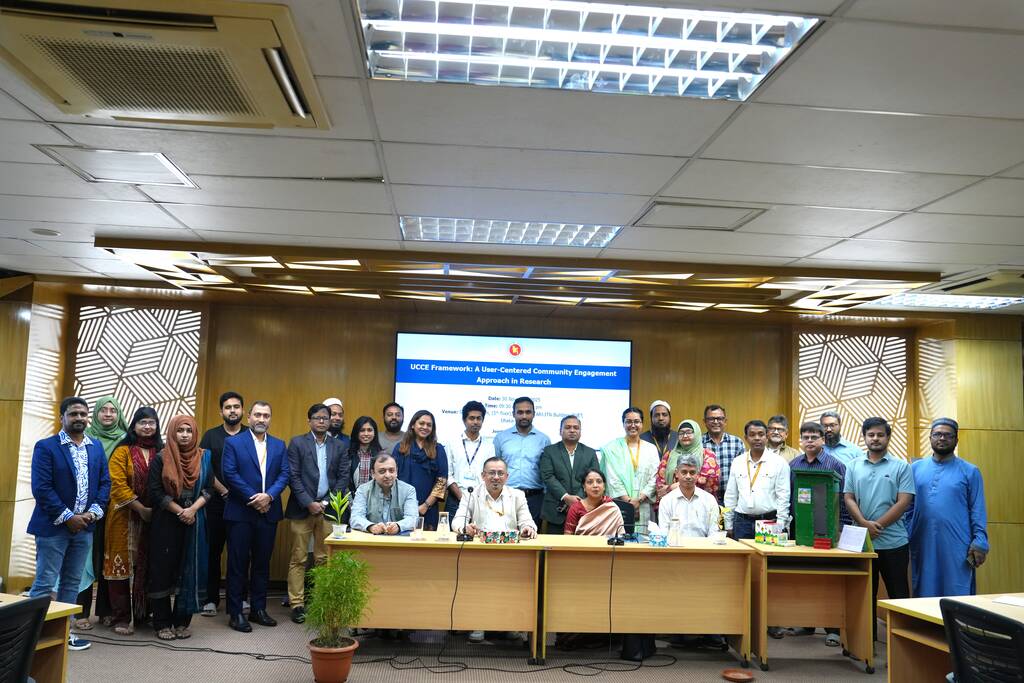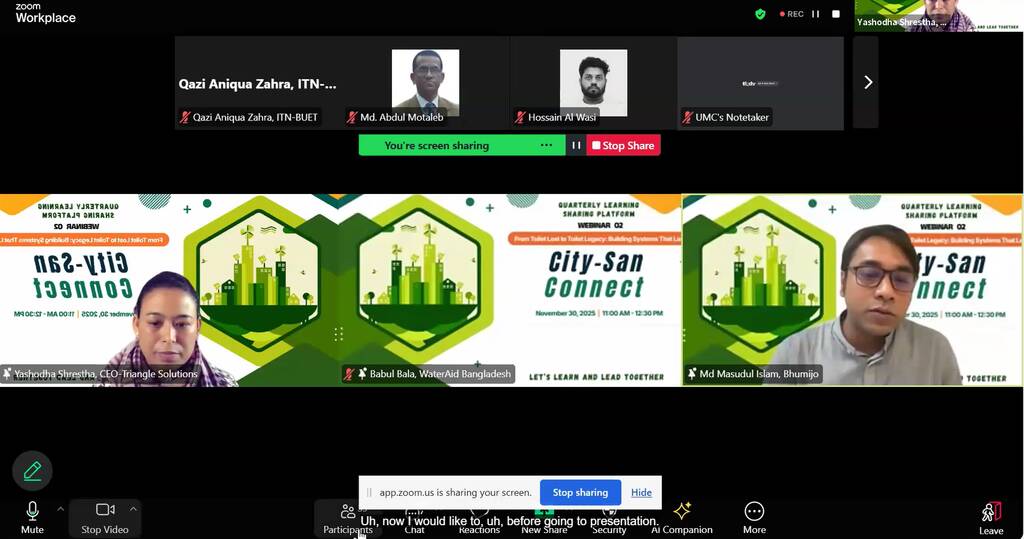The Mentor Cities are equipped with exemplary cases of different aspects of Citywide Inclusive Sanitation (CWIS). Eight municipalities in Bangladesh and Nepal have established effective sanitation initiatives, emerging as CWIS mentor cities. These include Faridpur, Jhenaidah, Kushtia, Lakshmipur, Saidpur, and Sakhipur in Bangladesh, as well as Mahalaxmi and Waling in Nepal. These cities demonstrate efficient sanitation practices and provide guidance to other cities in the region.
To promote collaborative learning and knowledge sharing among these mentor cities, ITN-BUET from Bangladesh and the Environment and Public Health Organization (ENPHO) from Nepal facilitated a mentor city cross-learning visit from 1 to 3 June 2024 in Nepal. A total of 12 representatives from the mentor cities, along with the Municipal Association of Bangladesh, visited Nepal to exchange sanitation experiences and strategies.
During the event, Bhawana Sharma, Executive Director of ENPHO, formally welcomed all the delegates from Bangladesh. Ash Kumar Khaitu, Programme Manager of ENPHO, shared the three-day event schedule with the delegates. Alauddin Ahmed, Project Manager of ITN-BUET, and Rajendra Shrestha, Programme Director of ENPHO, provided an overview of the CWIS and discussed the role of mentor cities in mainstreaming CWIS during the event.
.jpg)
.jpg)
.jpeg)
The delegation convened at Mahalaxmi municipality for a formal experience-sharing programme. Mayor Hari Gobinda Shrestha and Deputy Mayor Laxmi Maharjan attended the event. Welcoming the delegates, the Mayor said, “We are excited to share our experiences with you and hope that this exchange of knowledge and experiences will strengthen our mutual efforts towards achieving sustainable sanitation goals.”
Rabindra Upreti, representing Mahalaxmi Municipality, shared the city’s transformation into a mentor city, emphasising sanitation initiatives, challenges, and milestones achieved. During the delegation’s visit to the Faecal Sludge Treatment Plant (FSTP) in Lubhu, Sunil Krishna Shrestha, Director of Saligram Bal Griha, and Surya Prasad Ghimire, the plant’s operator, provided insights into its operational procedures. Debendra Shrestha, Engineer of ENPHO elaborated on the technical asects of the treatment process.
The delegation also toured Aerosan’s Public Toilet, an innovative public facility operated through a public-private partnership (PPP) model, which sparked interest among Bangladeshi officials to explore similar features for their smart public toilets. Additionally, the workshop incorporated a visit to the Guheshwori wastewater treatment plant, Kathmandu’s sole large-scale wastewater treatment facility. This visit provided firsthand insights into the plant’s operation and system components.
.jpg)
.jpg)
.jpg)
The exchange programme culminated in a workshop where representatives from mentor cities showcased their sanitation initiatives and best practices. Kabita Tiwari Gaire, Deputy Mayor of Waling municipality, underscored the importance of knowledge exchange with mentor cities to enhance sanitation efforts in Waling, extending an invitation for the Bangladeshi team to visit. Amitave Bose, Mayor of Faridpur municipality, Bangladesh, expressed appreciation for the opportunity to learn and invited the Nepali counterparts to Bangladesh for further collaborative learning.
This cross-learning visit underscored the transformative potential of the CWIS approach, facilitating the exchange of experiences and practical insights. The event has paved the way for enhanced sanitation strategies and strengthened partnerships, fostering continued cooperation towards sustainable sanitation solutions.





